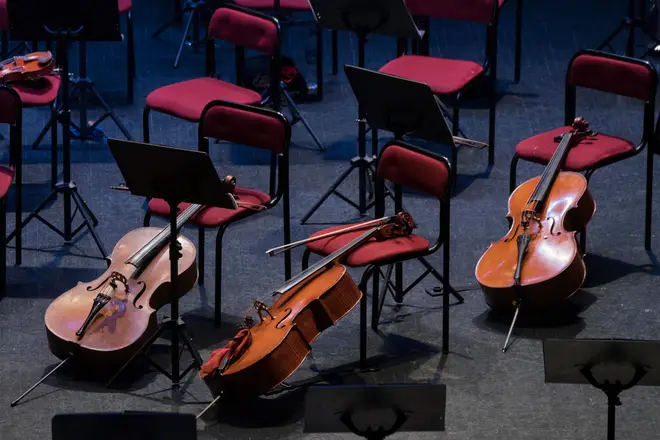New report reveals ‘devastating scale’ of harassment and discrimination in the music industry
29 September 2022, 18:00 | Updated: 29 September 2022, 18:24

A major report by the ISM shows higher levels of discrimination in the music industry than in 2018, with freelance and self-employed musicians being particularly vulnerable.
A new report on discrimination and harassment in the music industry by the Incorporated Society of Musicians (ISM) has been published, showing that an alarming majority of the musicians surveyed have experienced some form of discrimination at work.
The report follows two similar surveys in 2018, after which the ISM launched a ‘code of practice’ together with the Musicians’ Union (MU). With 117 organisations signed up, the 2022 survey was designed in part to investigate whether or not there has been any ‘cultural change’ in the sector following the 2018 recommendations.
66 percent of the musicians surveyed in 2022 reported experiencing discrimination, up from 47 percent in 2018. What’s more, 72 percent of the incidents reported in the survey were committed by people in a position of power or influence, and 78 percent of the discrimination reported was committed against women.
The survey also shows that reports of discrimination were highest among musicians who are Black, Asian, mixed or belonging to multiple ethnic groups, as well as women and disabled musicians, with the likelihood of discrimination increasing for those with more than one protected characteristic.
Despite the recommendations made by the ISM following the last survey on discrimination in the music industry, these new figures suggest that little, if any, progress has been made.
Read more: 63 percent of Black musicians have experienced racism in the UK music industry

The ISM surveyed 660 of its more than 11,000 members over the course of six weeks in May and June this year. 58 percent of the responses could be attributed to gender-based discrimination, with racial discrimination the second most common.
Respondents also said that discrimination happened on and off stage across a variety of settings, from rehearsals and performances to social media messages, networking events, teaching jobs and office meetings.
Anonymous comments from respondents have also been published within the report, ranging from unfair treatment, to direct accounts of assault and harassment.
Of the 136 comments provided in response to the survey, 58 percent of these “directly relayed details of sexual harassment”.
77 percent of the incidents reported in the survey – a number that rises to 88 percent for self-employed musicians – were not officially reported at the time.
According to data from the Department for Digital, Culture, Media and Sport (DCMS), self-employed and freelance workers made up for as much as 70 percent of the music and performance industries. These workers were also the most likely to experience discrimination in the ISM report, and the least likely to officially report it.
The most common reason given for not reporting discrimination was that it was ‘just the culture’, followed closely by there being no one to report to, and the fear of losing future work.
Three quarters of all respondents said that organisations lacked clear procedures for reporting discrimination – a figure that once again, is higher for self-employed musicians at 90 percent.
Comments from the musicians who took part also reported seeing their colleagues speak out, only for nothing to be done, or even to receive repercussions themselves. One responded said: “Even when inappropriate and unfair behaviour was reported, the emphasis appeared to be on “no fuss please” and “who knows about this?”’
For the 23 percent of respondents who did report incidents, four in every five resulted in no action being taken.
It was a privilege to write this @ISM_music report with @vickbain. May this be the last time we report on the endemic culture of fear and lack of protections that prevent workers, especially freelancers, from reporting discrimination. Working in music must become safer. https://t.co/2Pi8FMgvfT
— Dr Kathryn Williams (@kwilliflute) September 29, 2022
Figures from across the music industry have commented on the ISM’s report. The organisation’s president, and report co-author, Vick Bain said: “Everybody deserves to be safe at work and it’s a scandal that our brilliant music workforce is being let down in this way. As we highlight in the report, there are solutions to the problems we face.
“We need to take action now because we don’t want to have to highlight these issues again in another four years’ time.”
ISM chief executive Deborah Annetts called on those in leadership roles to take action, adding: “The music workforce is primarily freelance which makes it particularly vulnerable to victimisation if concerns or complaints are made. This must stop. Those who are discriminated against must feel safe to come forward and raise their concerns. If we do not engender this cultural shift then nothing will change.”
The ISM’s report concludes with recommendations for both the government and music sector, including trade bodies taking a more active role in policing their members, and extensive training across the industry, in order to tackle the issues raised in the survey.
If you’ve been affected by any issues mentioned in this article, please find guidance and resources on the Musician’s Union website or contact Samaritans online or on 116 123.


































